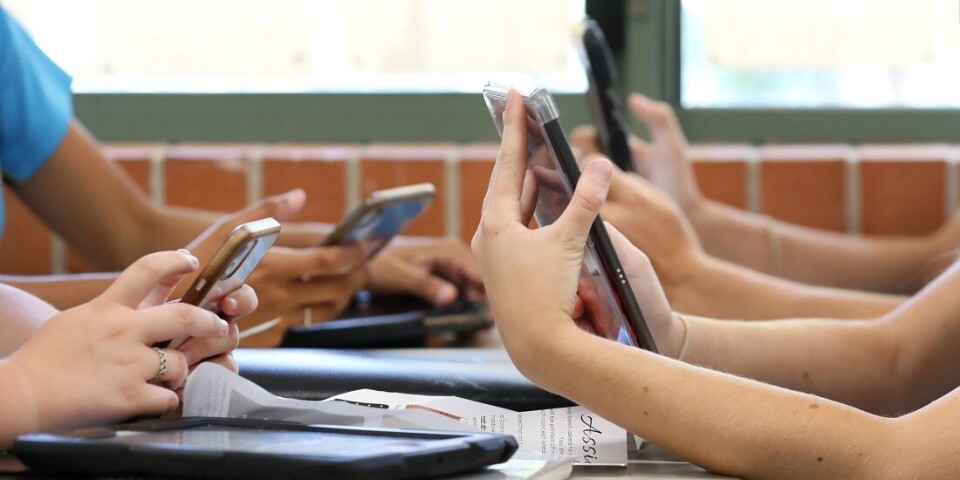THIS CONTENT IS BROUGHT TO YOU BY NTNU Norwegian University of Science and Technology - read more

Adolescents who are most active on social media are also the most active offline
Researchers found no evidence that the use of social media has a negative impact on social skills, but children with social anxiety may be at risk.
Parents often worry about the use of social media among children and adolescents. Caring about this is a good thing, and there are several reasons why you should pay attention. But there is one thing that parents needn’t worry about:
Young people spending time on social media does not impair their interaction with friends offline, a new study shows.
“Adolescents who increase their social media use over time are also more likely to spend more time with friends offline,” says Silje Steinsbekk. She is a professor at NTNU’s Department of Psychology.
The results are based on data from a long-term project called the Trondheim Early Secure Study. Data was collected from approximately 800 children and adolescents when they were 10, 12, 14, 16, and 18 years old.
Among other things, the researchers asked the following question: If children spend more time using social media, will their social skills get better or worse and will they spend less or more time with friends offline?
Important to know more about the use of social media
Social interaction with friends is important in itself. It is associated with good mental health and provides the opportunity to practise social skills.
“Social media is a new arena for social interaction. Some people have argued that the use of social media inhibits the development of social skills, while others have claimed the opposite: that social media can promote social skills. We did not find any evidence supporting one or the other,” says Steinsbekk.
She says it is important to gain knowledge about who is particularly vulnerable to social media use and who can benefit from it. The researchers therefore also investigated whether age, gender, the quality of friendship, and symptoms of social anxiety played a role.

Children with social anxiety may be at risk
The researchers found that children with symptoms of social anxiety who increase their use of social media a lot over time are at risk of developing poorer social skills.
“This correlation was weak, so we are reluctant to draw strong conclusions until more research has been done to investigate this further,” says Steinsbekk.
Previous research has shown that people with social anxiety may find it less intimidating to communicate with others online than in real life, and that these individuals therefore actually benefit from social media.
However, other studies show that they are also more vulnerable to problematic use of social media, such as increased risk of addiction and intensive use.
A challenging field of research
“Social media is a new social landscape where children and young people spend a lot of time, and we need knowledge about how it affects them. The findings of this study do not support the assumption that increased use of social media leads to less time spent together with friends. In fact, they suggest the opposite,” says Steinsbekk.
Children who increased their social media use displayed an increase in the number of days they spent with friends offline.
Other studies have shown that the use of social media leads to increased closeness in friendships, the development of new friendships, and old friendships being reinforced. This may be a possible explanation for the findings from the Trondheim Early Secure Study.
“We hope the findings can help reduce parents’ concerns somewhat. At the same time, it's important to emphasise the rapid pace of technological developments, which makes it challenging to research social media use," the professor says.
"It's impossible to know if the results would be the same if we studied today’s 10-year-olds and followed them until they turned 18 in 2032."
Reference:
Steinsbekk et al. The new social landscape: Relationships among social media use, social skills, and offline friendships from age 10–18 years, Computers in Human Behavior, vol. 156, 2024. DOI: 10.1016/j.chb.2024.108235
———
Read the Norwegian version of this article on forskning.no
More content from NTNU:
-
This determines whether your income level rises or falls
-
Why is nothing being done about the destruction of nature?“We hand over the data, but then it stops there"
-
Researchers now know more about why quick clay is so unstable
-
Many mothers do not show up for postnatal check-ups
-
This woman's grave from the Viking Age excites archaeologists
-
The EU recommended a new method for making smoked salmon. But what did Norwegians think about this?





































